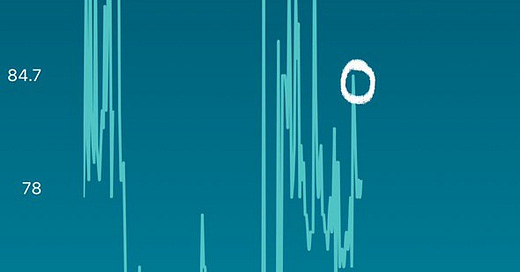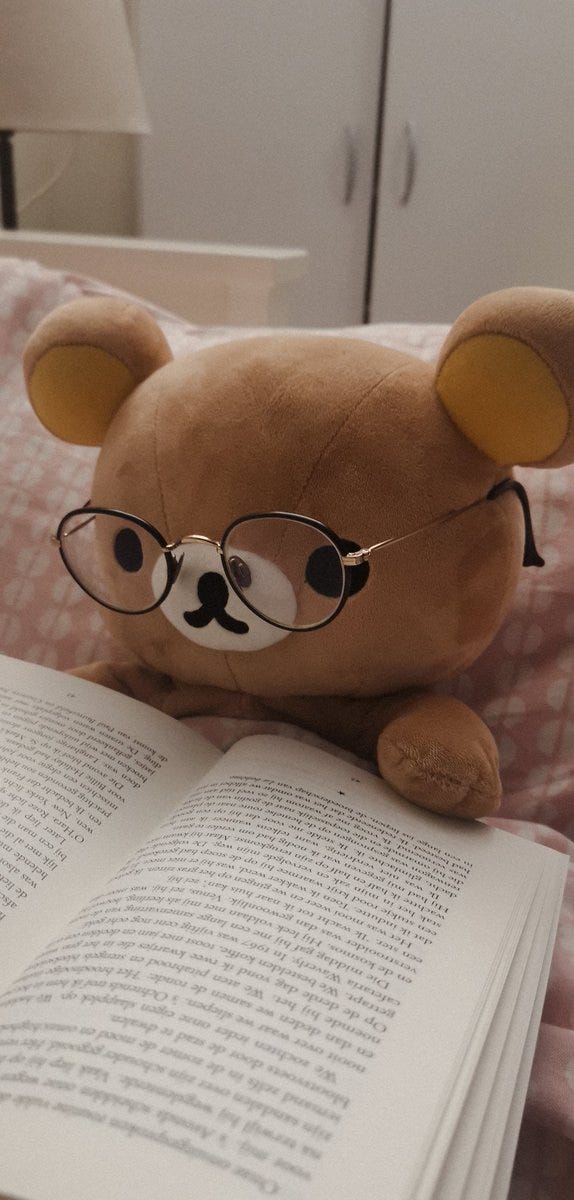Today’s newsletter is a review of After the Inquiry by Jolene Tan. The publisher, Ethos Books, very kindly sent me an advanced reading copy for review. Ethos has also extended this kindness to you, the reader, by making the book available for a giveaway. More details on how to win can be found after my review. Thank you for reading!
I had a hard time getting started with After the Inquiry. The book is set within the Singaporean public service, a system notorious for its bureaucratic procedures and jargon and not my idea of an enticing read. Thankfully, Jolene Tan manages to find one of the few interesting entry points into this world – by introducing a gun. The reader follows senior civil servant Boon Teck as he chronicles the events around the shooting of one Sergeant Mohammed Hafiz. (Some context for my international readers: Gun incidents are incredibly rare, even the police don’t fire their weapons. When they do, it becomes a mound of paperwork for the police force and makes national news.) The book is told through a series of official reports and footnotes and, despite the staid presentation, manages to build enough suspense to be a convincing thriller.

After the Inquiry resembles Tan’s first novel, A Certain Exposure, in many ways. Both books are mysteries, opening with a tragedy that needs to be investigated. Inquiry leans into this more, taking the form of a procedural drama rather than the more conventional literary fiction style of Exposure. Both books also grapple with the same thematic concerns – elitism, social inequality, the effect of Singaporean politics on the little people. I don’t bring this up as a slight. Tan has clearly found her niche and handles these ideas comfortably. It’s not uncommon for writers to pivot around the same few ideas (Sally Rooney’s new book is available for preorder now) and it’s a great success when done well. Conceptually, I’d say that Tan has matured between both books. However, After the Inquiry suffers from the same problems of craft as the first book and sags under clumsy construction and insincere characterisation.
I want to start with the good: Tan’s writing excels at cataloguing a specific brand of Singaporean cruelty. We gain access to the world of government scholars and other establishment high-flyers scaling the ladder of success and leaving everybody else in the dust. It’s a familiar narrative to anyone involved in Singaporean civil society: the well-oiled machine works for the few while the national pledge promises of happiness and prosperity are out of reach for many others. It’s also a familiar story in local literature. Sebastian Sim’s Let’s Give It Up For Gimme Lao! satirises the ascent of a Chosen Politician and Judith Huang gives the class system a science fiction treatment in her Young Adult novel Sofia and the Utopia Machine. I have a soft spot for Jeremy Tiang’s It Never Rains on National Day which is a disarmingly intimate portrait of upper middle class Singapore. After the Inquiry adds much-needed political intrigue to the scene. Tan brings the reader into backroom meetings, Meet-the-People sessions, and “scholar’s teas” (informal chats between promising young civil servants and potential mentors/people who will be watching their careers closely). For readers outside the system, these happenings in the public service are the stuff of coffeeshop and Whatsapp group rumours. The insider’s vantage point is both bold and effective, prompting the reader to wonder if there might actually be some truth to the Machiavellian politicking in After the Inquiry. On my part, I wondered several times if Tan was about to get in trouble for writing this.
I’m hesitant to give too much of the plot away, especially as it is the strongest part of the novel. I’ve been watching copaganda reruns and After the Inquiry’s astute political sense was a welcome break from the (delusional) pro-establishment bent of the Law & Order universe. I do wish, however, that the meticulous plot had been given a better vehicle. When the publisher Ethos teased the release, I was intrigued by the format of the book. I thought that the constrained form would help rein in the over-description that burdened the first book. This was not to be.
The book is divided into eight chapters (as you can see above), and the majority roughly correspond to a different interview with a witness. While some of these pages adhere to the interview form (X: …, Y: …), they are hijacked by Teck the narrator’s interjections. The book also uses footnotes throughout the text; they are meant to function as parenthetical asides where Teck reveals his true thoughts about events as they unfold. This delineation is not respected, we learn about Teck’s opinions throughout the prose anyway.
The adoption of a form, especially one as restricted as the civil service report, should be a commitment. Without commitment, the choice looks aesthetic rather than meaningful. The confused form actively does a disservice to the characterisation. I’m unsure of the tone that Teck assumes in this book. While report language is expected to be bloodless, there are some strange turns of phrase here. This is Teck describing an interviewee’s Instagram account:
It is perfectly factual, for instance, to describe the various photographic and online products of Azura’s emotionalism; yet the suggestions they present, the sympathies they evoke, may mislead.
Teck is scarcely believable as a character with his overwrought speech. I understand that he is meant to be a portrait of an obnoxious and pompous careerist. I just don’t believe that anybody would speak like this.
I don’t ordinarily treat sincerity as a term of praise; too often, it means sticky simple-mindedness.
I don’t hate this line. I think “sticky simple-mindedness” is an effective description that would have fared better in the third-person voice. The problem with the narrator is that he is contemptible and the reader can easily feel the writer’s contempt for him too. It bleeds through in Teck’s circuitous justifications for the status quo (most observable in a scene where he dismisses a desperate resident in need of housing at a Meet-the-People session) and in his disdain for both cats and children. The way he arrives at conclusions is understandable but not sympathetic. Teck is not an unreliable narrator like The Great Gatsby’s Nick Carraway or Lolita’s Humbert Humbert, both dishonest about their own shortcomings but leaving enough clues for the reader to piece things together. Teck is a flawed character who is also the author’s mouthpiece for all his flaws.
The other characters are also denied subtlety. Nithya is Teck’s subordinate and co-investigator in the case and his foil. Far from being in the civil service out of cynical self-interest, she believes in the system.
They’re clichés now, the high-quality flats, the clean water and smooth trains and peace between races and religions – but they’re amazing! Our libraries, our hospitals, our parks, are miracles, they should move us!
Her idealism is charming and provides a good foundation for a character arc. (Slight spoiler follows.) By the end of the book, she is thoroughly disillusioned. The emotional payoff in the conclusion hinges on the reader being on Nithya’s side. The final note is cathartic. Nithya confronts Teck over a decision and has been set up with the perfect moral high ground to deliver a parting shot. The way she lashes out at Teck, who is a symbol for the system’s (at times amoral) pragmatism, sounds identical to a common civil society critique of the public service.
You think you know everything. You think you can break everyone down into buttons to push and strings to pull.
The book deals in binaries. Following the moral logic of this novel, characters are easily split into the good and the bad. Ethnic minorities and the disenfranchised are the ones to root for, the upper class Chinese establishment figures are the antagonists. It’s not a stretch to assert that these characters are based on real life archetypes. However, laid out in this way and paired with the overly direct dialogue, this simplification is an unsatisfactory exercise in characterisation.
After the Inquiry is ultimately writing for insiders. Tan has a clear point of view and has written about her activist career for the Ethos Instagram page, drawing a clear link between her political commitment and this book. She renders the bureaucracy’s cold condescension faithfully but I’m not sure that anybody who doesn’t already have this view of the system will be converted.
Good political fiction exists but it has to both have good politics and be good fiction. A key component of the latter is knowing when to exercise restraint. I wish the writer had given the book some room to breathe. Allow the characters space to be opaque, let the readers draw their own conclusions. I have a lot of respect for Tan as an activist and I think she has a great sense for story. The what of the book is clear, I wish the how was better.
Now for the giveaway
I’d love to know if you disagree with my reading of After the Inquiry! If you’d like to read more about the book, Olivia Ho at The Straits Times had a different perspective from me. If you’d like to read the book for yourself, just respond to this email. I don’t really have any other conditions for entering the giveaway though it would be nice if you told me what you liked/disliked about my review! (You must be a subscriber because I’m sensitive.)
Ethos has set aside one physical copy for a reader based in Singapore and an ebook for anyone who’s further afield.
Tl;dr: reply and say “I want the book” and you might get a free book!
If you’re not sick of me yet
My review of another Ethos title, Eating Chilli Crab in the Anthropocene, has coincidentally just been published in Vulture Magazine.








thank you for the insightful review :) i'd love to read this book!